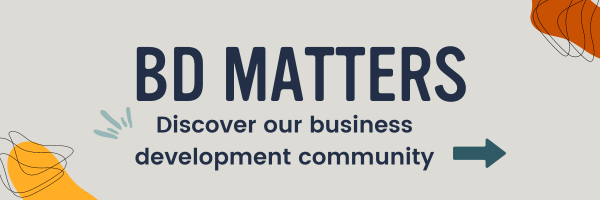
Why introverts make just as good sales people as extroverts
September 12, 2023
Agencies thrive on collaboration, networking, building relationships, and teamwork – all things that often resonate more with extroverted folks. But where does that leave our introverted colleagues?
Introverts bring an array of hidden talents and superpowers to the table, qualities that are incredibly valuable for sales teams. Unfortunately, these talents often fly under the radar, overshadowed by the “louder” voices in the room.
The good news is that introverts can harness their unique abilities to find success while staying true to themselves. Moreover, agency leaders can create environments that allow introverted voices within their sales teams to rise above the noise.
Addressing the elephant in the room: Introverts can network effectively!
The way introverted sales people build relationships, network, and market themselves is distinct from extroverts – not better or worse, just different, and yet, very effective. They may not cover a high volume of meet and greets in a grand way but they can forge deep meaningful connections – the kind of connections that new biz requires.
Think of it as the “hunter versus farmer” analogy. Extroverts might be pushing to close a deal aggressively, like a hunter chasing prey for an immediate meal. However, introverts tend to be more like farmers, planting seeds that take time to grow but eventually yield a bountiful harvest. They focus on nurturing long-term relationships that result in repeat business.
They’re able to do this because of their exceptional listening skills. Introverts are great at making someone feel seen, heard and comfortable. Many introverts often know how to effectively display vulnerability, which encourages others to open up – perfect for knowing what reservations a potential client might be having about hiring you or why you lost out on an important pitch.
How agency bosses and managers can help their introverted sales people:
If you’re an extrovert managing introverts, creating a safe space where everyone can be authentic is crucial.
Start by encouraging introverted team members to be themselves
I don’t say this lightly. Many introverts express a reluctance to reveal their introverted nature to their managers particularly for roles like marketing, BizDev and sales. They hold concerns that it might limit their opportunities or lead to a perception of diminished capability within the workplace.
To be brutally honest, I have seen extroverts unknowingly judge introverted individuals even in the interview stage. Meeting targets, securing business deals, and engaging with people are things that some hiring managers don’t think an introvert can do. The more this goes on, the more introverts feel they can’t be their authentic selves, and hiring someone who isnt being themself is a recipe for disaster.
Watch the labels:
It’s important to be mindful of the assumptions we make about people based on introversion or extroversion. Stereotypes can be limiting and inaccurate. The key is to meet people where they are and get to know them as individuals. Also it’s about understanding that some people are ambiverts, a mixture of the two, and/or change in different environments, in different projects. We should be cautious around using polarising terms of extremity.
Perceptions are changing, and an article like this is to ensure the change continues, but there are still far too many biases towards introverts.
Provide opportunities for them to shine in environments where they naturally excel
Make a conscious effort to give introverts a chance to express themselves but do this softly so that you’re not putting them on the spot. You could address them in a 1-2-1 conversation and say “I’d love to know your thoughts around what we discussed earlier, I value your opinion.”
Remember, in many cases introverts are used to just being shut down. So they often need someone to create a pathway where they can share their thoughts and own it.
Another thing to remember is that when you’re looking for participation and ideas, your extroverted team members will naturally speak up first, but speaking up first doesn’t mean their ideas are valid or will help your business grow. So, encourage everyone to share before you start making decisions. Make sure everyone has their voice heard in the room and are given equal opportunities to speak. Simon Sinek has a great book on this called “Leaders Eat Last”.
Praise them and recognise that your team needs them just as much as the extroverts
It’s essential to acknowledge and celebrate the contributions of your introverted team members. Often, they may not be as vocally self-promotional about their accomplishments as their extroverted counterparts. However, this doesn’t diminish the value they bring to the table.
Their knack for deep analysis, thoughtful problem-solving, and their ability to foster profound, meaningful connections can be game-changers. Your extroverted hunters may quickly find leads, but introverted sales people can often excel at converting leads into paying clients with a slower more methodical process.
By recognising and appreciating their strengths, you not only boost their confidence but also ensure a balanced and dynamic team where both introverts and extroverts can complement one another.
Key takeaway:
Being an agency boss or manager comes with great responsibility. If there’s anything you take away from this article, let it be that we should be mindful of our biases and stereotypes towards introverts and you need both introverts and extroverts for teams that truly thrive and to bring about agency success.

